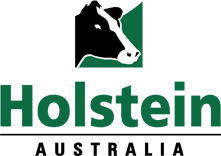Carenda Holsteins named double Master Breeder
Prefix: Carenda
Member: Kitchen Farms
Location: Boyanup, WA
How long have you been in the industry: 42 years
Farming generation: 3rd gen (on this farm)
Land size: approx. 650 hectares owner & leased
Cows milked: approx. 400
Important cow families: Faith family & Vanessa family
Favourite bull used: Informer, Shotime & Goldwyn
Current Bull Team: Tirano (polled bull), Sondalo, Amalfi, Chevvy (PP) Vogue CFP (PP), Vogue Nipit (PP), Peak Magicball (PP), Peak & Hermes, Progenesis Proceed
Important traits: Butter fat and protein, fertility, polled genetics – establishing a few polled cattle now. Feed saved (feed efficiency)
First EX cow: 2 EX cows on the first day – Carenda Quality Black Magic, Carenda Quality Jemima
Ray Kitchen of Kitchen Farms has been dairying for a lengthy 42 years.
Born into the dairy and breeding industry, his parents Jack and Mary began farming in the mid-1950s, and soon after started their stud herd in 1960.
Over the life of the dairy farm, many members of the family have contributed to the farm’s success and the business has stayed within the family.
Today, Ray and his wife Donna are in partnership with his brother Mal and his wife Leslie and their 91 year-old Mother Mary is still actively helping out with milking and calf feeding.
“I’m sure Mum appreciates being involved in the achievement that she’s worked so long towards and I think my father would have been very pleased, proud and delighted that we’ve won the award” says Ray.
Mr Kitchen says one of the key elements to his farm’s success is time.
“It takes generations of improving your herd to be able to breed the type of animal you would like on the farm” says Ray.
Mr Kitchen states that he and his family have been classifying and herd recording since the early days of dairying.
Additionally, he highlights an important contributing factor to their achievement, is working towards a goal of breeding cows with high quality valued genetics.
“When it comes to breeding, we strive for good health, fertility and less mastitis. Our objective is to breed cows that are easily managed, who have less problems but are also more profitable” says Ray.
Mr Kitchen identified genomics as a key tool used in his breeding program.
“Genomics brings reliability into your decisions” says Ray.
He explains that over time, information can change depending on how well the animal and the animal’s parents perform.
Ray states “I believe the genomic breeding value is a good guide to selecting bulls and the female replacements for your herd.”
Kitchen Farms have mated heifers to the best artificial breeding bull available and have used genomic testing on bulls and females.
Every year in the past 40 years they have also undertaken flush work for embryo transfers.
“Our sire selection has been key to our herd improvement, along with utilising our best cows though embryo transfer (ET)” say Ray.
In the last 6 years, they have used close to 100% of genomic tested bulls and occasionally but rarely use a proven bull
Mr Kitchen states “cows are going into calf quicker and they are having less cell count and mastitis problems”.
Kitchen Farms have also invested in their feeding program.
They use a grazing system for half the year and use TMR during the hotter months; they make their own silage in a pit, make hay and also buy extra hay and grain that is mixed through the TMR feeding system.
“It’s a bit of grind sometimes and you do feel tired and it does wear on you but I still enjoy the challenge of breeding good cattle – you wouldn’t do it unless you loved it” says Ray.
Please join us in congratulating the Kitchen family on their outstanding achievement and contribution to the Holstein breed.

